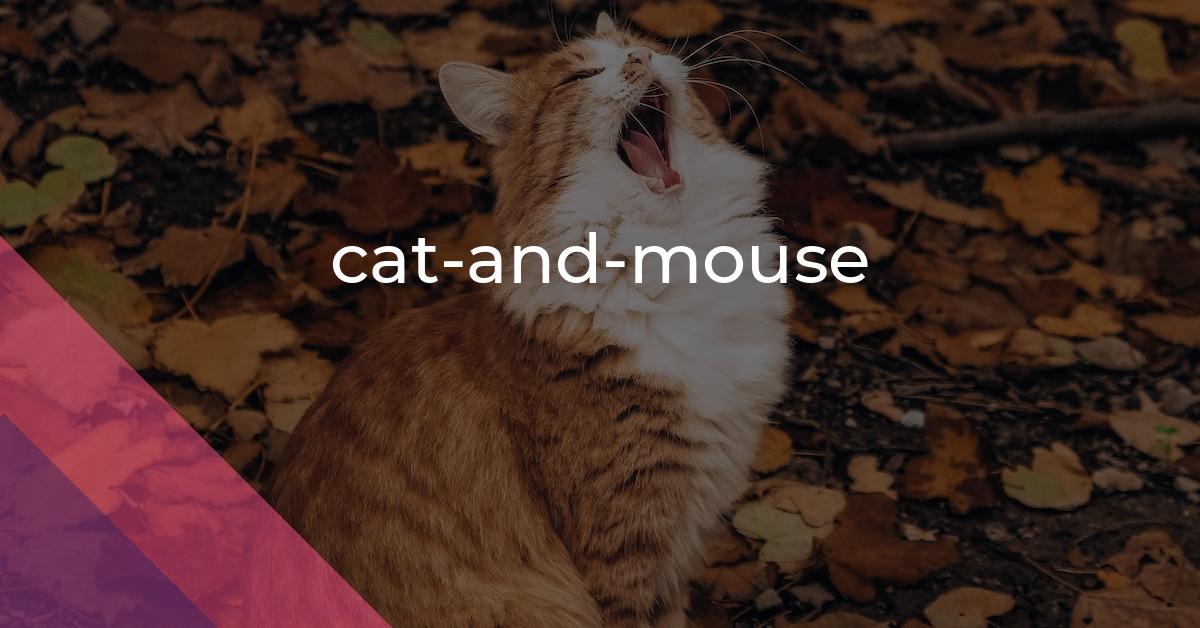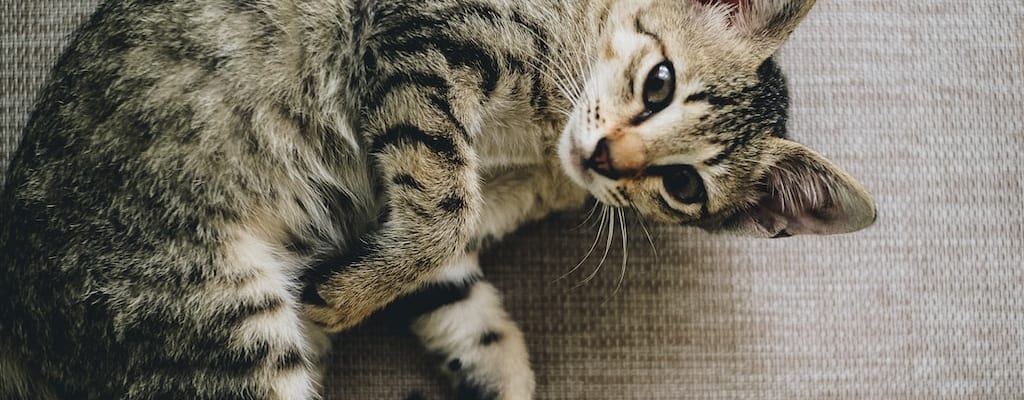cat-and-mouse: Idiom Meaning and Origin
What does ‘cat-and-mouse’ mean?
The idiom "cat-and-mouse" refers to a situation where one person or group is constantly chasing or trying to catch another, often in a playful or deceptive manner. It is a metaphor for a strategic and unpredictable game of pursuit or evasion.

Idiom Explorer
The idiom "play chicken" refers to a dangerous game or situation in which two or more people or vehicles, driven by a desire to prove their bravery or dominance, deliberately approach each other in a head-on collision course, waiting until the last moment to back down or swerve. The purpose is to see who will "chicken out" first and avoid the collision.
The idiom "lead a cat-and-dog life" means to have a chaotic or constantly quarrelsome existence.
The idiom "lady or tiger" refers to a situation where there are two equally probable outcomes, one favorable and the other unfavorable, resembling two doors. The outcome can be unpredictable or dependent on unknown factors.
The idiom "juggling act" refers to the skill or challenge of managing multiple tasks or responsibilities simultaneously. It implies a delicate balance and careful coordination.
The idiom "hurry up and wait" means to rush or be quick to do something, only to have to wait for a long time for the desired outcome or result. It reflects the frustrating and often futile nature of constantly being in a state of urgency followed by a period of inactivity.
The idiom "hot on someone's heels" means to be very close behind someone, often in pursuit or with the intention of catching or overtaking them.
The idiom "holy catfish" is an exclamation used to express surprise, astonishment, or disbelief. It is a lighthearted and humorous way to convey one's reaction to a surprising or unexpected event or situation.
The idiom "hold with the hare and run with the hounds" means to support or be loyal to two opposing factions, causes, or groups. It suggests being deceitful or indecisive by trying to please both sides.
The idiom "herd cats" means to attempt to control or coordinate a group of people or things that are unruly or difficult to manage. It implies that the task is extremely challenging and likely to meet with limited success.
Having the tiger by the tail means being in a dangerous situation where one has a strong grip on something powerful and uncontrollable.
Deciphering the Game
Cat-and-mouse is an English idiom that originated in the 17th century. It describes a game of pursuit or deception, where one party plays the predator (cat) and the other the prey (mouse). This idiom has evolved to symbolize cunning, evasion, and suspense.
The behavior of cats and mice in nature is the basis for this idiom. Cats have a natural instinct to chase and capture small animals like mice. This behavior has been observed for centuries and contributes to the association of cats with aggressiveness and hunting.
The phrase "cat-and-mouse" became popular in the English language during the 17th century. It appeared in literary works, including proverbs and plays. It gained further traction in the 18th and 19th centuries with the emergence of fables and children's stories featuring cats and mice as main characters.
The figurative meaning of cat-and-mouse revolves around a power struggle or battle of wits. It describes situations where one party tries to outwit or outmaneuver the other, similar to a cat chasing a mouse. It represents a game of psychological tactics, with the cat in pursuit of the mouse.
The idiom can also depict situations where the roles are reversed, with the mouse in control, actively eluding the cat. This adds an element of surprise and unpredictability to the idiom, as the outcome of the pursuit can vary depending on the context and actions of the parties involved.
Over time, the idiom has made its way into popular culture through literature, film, and music. It is metaphorically used to describe various scenarios, from interpersonal relationships to professional rivalries and strategic competitions. It captures the essence of a thrilling, yet precarious, dynamic between opposing forces.
The idiom cat-and-mouse introduces tension and uncertainty, reflecting the risks and rewards of engaging in a pursuit. It highlights the fluid nature of power dynamics, where control can shift from the predator to the prey and vice versa. It invites contemplation on the delicate balance between strategy and adaptability.
In addition to cat-and-mouse, there are several related idioms that share a similar theme:
The idiom "give chase" is akin to the pursuit aspect of cat-and-mouse. It describes the act of actively chasing and pursuing someone or something.
The idiom "dog and cat" is a phrase that represents a constant state of conflict or disagreement, similar to the antagonistic dynamic between a cat and a mouse in the idiom cat-and-mouse.
The idiom "cat and dog life" refers to a tumultuous or discordant existence. It suggests a turbulent relationship similar to the one between a cat and a mouse.
The idiom "play chicken" conveys a situation where two parties engage in a dangerous game of brinkmanship. It shares a similar sense of risk and tension as the idiom cat-and-mouse.
The idiom "lead a cat-and-dog life" describes a life filled with constant conflict or strife. It signifies a similar tumultuous existence as the one depicted in the idiom cat-and-mouse.
The idiom cat-and-mouse may have an elusive origin, but its powerful imagery and symbolism continue to resonate with contemporary audiences. It prompts reflection on the complexities of human nature and the enduring struggle for dominance.
Example usage
1. The detective and the thief played a cat-and-mouse game, with the detective always trying to catch the thief, but the thief always managing to escape.
2. The two countries have been engaged in a cat-and-mouse conflict, with each side trying to outsmart the other in a constant battle for power.
3. The teacher and the mischievous student were involved in a cat-and-mouse relationship, with the teacher attempting to control the student's behavior while the student continued to push the limits.
More "Games" idioms



